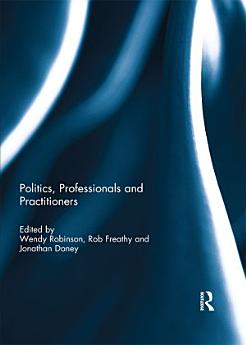Politics, Professionals and Practitioners
Acerca de este libro electrónico
With fresh examples from nineteenth, twentieth and twenty-first century education, as well as a diversity of methodological approaches and sources, the book addresses a range of fundamental questions about educational professionalism. These include the wider politics of professionalism; issues of professional knowledge and expertise; what and who counts as professional within various power discourses; professional training, socialisation and accreditation; and professional identities, power, agency, autonomy regulation, accountability, and control. Overall, there is a sense from these chapters that there is something fractured and disconnected in current discourses around educational professionalism, but that there have been particular moments in the past when there was the promise of something different and possibly something more authentic. Moving beyond a narrow focus on schoolteachers as professional practitioners, to embrace a wider conceptualisation of educational professionalism within higher education, the churches, educational leadership, and quasi-professional and voluntary organisations, the book represents a rich and novel contribution to the field.
The chapters in this book were originally published in various issues of History of Education and the British Journal of Religious Education.




